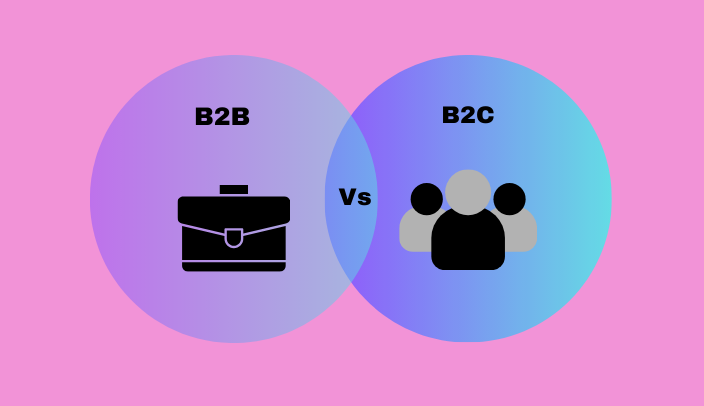Digital marketing plays a crucial role in today’s business landscape, helping companies connect with their target audiences effectively. Within this realm, there are two primary types of digital marketing: B2B (Business-to-Business) and B2C (Business-to-Consumer). Each approach comes with its own unique strategies, challenges, and opportunities, shaped by the distinct needs and behaviors of their respective audiences.
In B2B marketing, the communication is often more formal and technical, aiming to provide detailed information that solves specific business problems. The focus is on building long-term relationships with other businesses, and the tone is usually professional and industry-specific. B2B engagement methods include email campaigns, webinars, and networking events. Platforms like LinkedIn are especially important for B2B interactions, as they offer a professional space to connect with potential clients and partners.
On the other hand, B2C marketing tends to be more casual, creative, and emotionally driven. The goal is to quickly capture the consumer’s attention and drive immediate action. B2C content often includes blog posts, videos, and social media updates that are designed to be shareable and engaging. Social media platforms like Instagram and Facebook are key channels for reaching a broad consumer audience, where brands can create dynamic interactions and real-time communication.
When it comes to content creation, B2B marketing leans heavily on educational content like whitepapers, eBooks, and case studies. This content is distributed through professional channels and is designed to build trust by demonstrating expertise. In contrast, B2C content is more diverse, often entertainment-focused, and designed to be visually appealing. Distribution happens across social media, through paid ads, and via influencer collaborations.
Building brand loyalty and customer retention are also handled differently in B2B and B2C marketing. B2B loyalty is built on consistent value delivery and reliable service, with strategies like account-based marketing and personalized solutions. B2C loyalty is often built through brand experiences and rewards programs, focusing on staying top-of-mind with regular updates and engaging content.
In terms of technology and automation, B2B marketers use tools like CRM systems and marketing automation platforms to manage leads and track the buyer’s journey. AI is utilized for lead scoring and predictive analysis, helping businesses personalize their marketing efforts. B2C marketers, on the other hand, rely on eCommerce platforms and social media management tools to automate responses and track customer behavior. AI in B2C is used for personalized shopping experiences and dynamic pricing, enhancing the customer journey.
To succeed in either B2B or B2C digital marketing, it’s essential to understand the audience, tailor the content to meet their needs, and optimize the sales funnel accordingly. Utilizing data and AI to personalize marketing efforts can improve efficiency and effectiveness. Finally, developing strong customer retention strategies is crucial for long-term success, whether through loyalty programs in B2C or personalized service in B2B.
In conclusion, B2B and B2C digital marketing require different approaches, but both are essential for reaching and engaging with the target audience. By understanding the differences and implementing the right strategies, businesses can build strong relationships, enhance brand loyalty, and achieve their marketing objectives in today’s competitive digital landscape.

Key Differences Between B2B and B2C Marketing
- Audience: B2B marketing targets businesses and professionals, while B2C marketing targets individual consumers. This difference in audience requires different approaches in messaging and content.
- Sales Cycle: B2B sales cycles are longer and involve multiple decision-makers, whereas B2C sales cycles are shorter, with decisions often made quickly by individuals.
- Content: B2B content is more informative and technical, while B2C content is more entertaining and emotional.
- Communication: B2B communication is typically formal and professional, while B2C communication is more casual and engaging.
- Channels: B2B marketing often relies on email campaigns, LinkedIn, and professional networks, whereas B2C marketing makes extensive use of social media platforms, influencer marketing, and direct-to-consumer strategies.
How to Leverage B2B and B2C Strategies
To maximize success in either B2B or B2C digital marketing, businesses should:
- Understand the Audience: Conduct thorough research to understand your target audience’s needs, preferences, and pain points.
- Tailor the Content: Develop content that speaks directly to the audience, whether it’s educational for B2B or entertaining for B2C.
- Optimize the Sales Funnel: Ensure that the sales funnel is aligned with the customer journey, providing the right information at the right time.
- Utilize Data and AI: Leverage data analytics and AI to personalize marketing efforts and improve efficiency.
- Focus on Retention: Develop strategies for customer retention, such as loyalty programs for B2C or personalized service for B2B.
